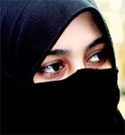
By Maryam Sakeenah
October 12, 2015
It did not take me a long time as a schoolteacher to observe that the way we educate is fundamentally flawed. In my very first year as a teacher I was asked to take extra classes for a badly performing group of students. I was told that the objective was just to help them somehow secure a passing grade. The lessons left me drained out at the end of the day with a sense of frustration over the extremely slow progress, if at all, of the students. However, there was something else I figured out: each of these students classified as poor performers and persistent failures but had a gift of his/her own. One of them, who had partial cerebral palsy, was a brilliant calligrapher, others could draw extraordinary well or do wonders in the sports field, while one other loved caring for animals. I realised the pointlessness of compelling these gifted children to do maths, english or history when academic pursuits were not their forte. But the tragedy was that the education system did not value what they possessed, and hence labelled them as failures for what they were not meant to do in the first place. I asked to meet the parents of these children, convincing each one of them that their children were gifted and talented in diverse skills that the parents must allow them to pursue. All of the parents scoffed at the notion, saying that whatever talent they had “will not get them anywhere in life”, and that they must, by any means, be forced to do well in the disciplines acknowledged by the education system.
Although I did not have much luck with helping these students recognise and explore their true talent owing to stiff resistance from school administrations and families, I learnt how the way we educate refuses to recognise natural human diversity and narrows down ability exclusively to academic disciplines. This is not only unjust and not insightful, it is fundamentally perverse and limiting. It classifies human talents and abilities on a scale inconsistent with human nature, which places academic intelligence, literacy and numeracy at the top. It is built on the fallacy that all human beings are meant to excel at reading, writing, calculating, memorising and reproducing, and those who do not are of less ability and value.
Such a system oppresses those countless human beings that God has constructed more creatively, those who are more artistic or sporty or possess unconventional intelligence. The system discards them as worthless. There are so many real life horror stories of students giving up on themselves and developing low self-esteem or other psychological problems because the school forced them to perform academically while what nature had intended for them was different. Their lack of academic interest and ability led to them being labelled as failures, which in turn became a self-fulfilling prophecy as these individuals were consigned to the fringes of a system that mainstreams only a certain kind of intelligence.
A simple analogy invoked in this context is quite striking. How would a fish feel about itself if it were judged for its ability to climb trees when it was meant to swim? When we put the ability to climb trees as the only ability of worth, the birds that fly, the fish that swim and the plants that bear fruit are all trashed in one fell sweep. That is what we have been doing to millions of human beings for hundreds of years.
Not only does this stark reality we have lived with for so long need to be recognised, there needs to be a radical reformation of the way we educate. Human intelligence needs to be redefined to recognise innate diversity. It needs to accommodate, acknowledge and appreciate the many colours and shades that make up the spectrum of our humanity. Ken Robinson has done some great work to highlight the phenomenon of how schools kill creativity. In Europe and the US, some work on revamping the system along these lines has begun, but in our part of the world we still have to recognise the problem. Our education should stop stifling human individuality and awarding success only to those who fulfill its narrow definition of ability. Education must recognise that academic ability is not the standard human trait we must pursue and develop in all human beings indiscriminately and that success is attainable in ways other than academic achievement.
The creative arts, physical education and manual labour all need to be given their due place and value not only as recognised fields of learning but also as well respected career paths. Vocational education must be given to those who are not academically oriented and such an education should have as much prestige as a college education. We need to identify diverse talents in individuals and allow them to excel in those by not only providing opportunity but also recognition and value to non-academic pursuits. Only this will help end the silent oppression that has stifled natural human diversity since human beings invented standardised education.
Maryam Sakeenah is a freelance columnist
Source: dailytimes.com.pk/opinion/12-Oct-2015/killing-human-diversity




 Moderate Islamist here
Moderate Islamist here


0 comments:
Post a Comment